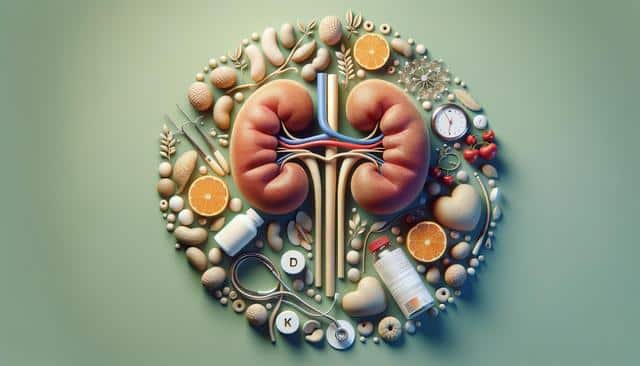Understanding Kidney Disease and Diet
Kidney disease is a condition that affects the kidneys’ ability to filter waste and excess fluids from the blood. This can lead to the accumulation of toxins in the body, requiring careful management to maintain health. One of the most critical aspects of managing kidney disease is adhering to a specialized diet. While each individual’s dietary needs may vary based on the stage of their condition and overall health, there are general guidelines that can help. A kidney-friendly diet typically focuses on reducing the intake of certain nutrients that can burden the kidneys, such as sodium, phosphorus, and potassium.
Foods to Avoid for Kidney Health
For individuals with kidney disease, avoiding certain foods can help prevent further damage to the kidneys. High-sodium foods are a primary concern because they can increase blood pressure and lead to fluid retention, putting additional strain on the kidneys. Foods that are typically high in sodium include:
- Processed meats like bacon and hot dogs
- Canned soups and vegetables
- Salty snacks such as chips and pretzels
Additionally, foods high in phosphorus and potassium should be limited. These include dairy products, nuts, bananas, and potatoes. Restricting these foods helps in managing the balance of electrolytes in the body, which is crucial for kidney health.
Recommended Foods for a Kidney-Friendly Diet
While there are several foods to avoid, there are also many that can be beneficial for individuals with kidney disease. A diet rich in fruits and vegetables that are low in potassium can provide essential vitamins and minerals without overloading the kidneys. Some kidney-friendly options include:
- Apples and berries
- Cauliflower and cabbage
- Red bell peppers and garlic
Protein is also essential, but it should be consumed in moderation. Lean sources such as fish, chicken, and tofu can be beneficial. It’s important to work with a healthcare provider or a dietitian to create a balanced meal plan that meets individual nutritional needs.
Hydration and Kidney Disease
Proper hydration is vital for everyone, but for those with kidney disease, managing fluid intake is essential. Depending on the stage of the disease, fluid restrictions may be necessary to prevent fluid buildup. Drinking water is generally recommended, but it should be done in controlled amounts. Beverages high in sugar or caffeine, such as sodas and coffee, should be consumed sparingly. Monitoring fluid intake helps in maintaining the right balance and ensuring that the kidneys are not overworked.
Collaborative Approach to Dietary Management
Managing kidney disease through diet requires a collaborative approach. Working closely with healthcare professionals, including nephrologists and registered dietitians, can provide the necessary support and guidance. Regular monitoring of kidney function and nutritional status allows for timely adjustments to the diet as needed. Education on reading food labels and understanding nutritional information is also crucial, empowering individuals to make informed dietary choices.
Conclusion
In summary, a carefully managed diet plays a vital role in the overall health and well-being of individuals with kidney disease. By focusing on reducing the intake of harmful nutrients and incorporating kidney-friendly foods, individuals can help preserve kidney function and improve their quality of life. Continual collaboration with healthcare providers ensures that dietary plans remain effective and aligned with evolving health needs.
